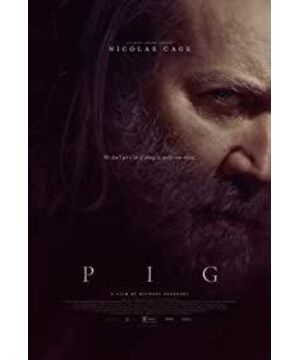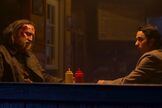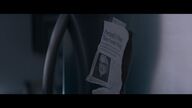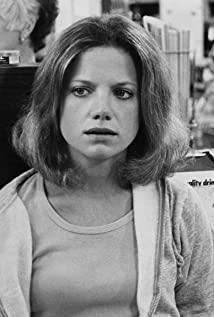Food is about memory, and people find reconciliation and redemption with the help of their taste buds. This is easily misunderstood as the true story of Jonh Wick with pig's film The Pig.
The fixed camera position and the slowly panning wide-angle lens are aimed at the virgin jungle, and the sunlight passing through the jungle is projected on the protagonist of this work, Rob, a Robinson-style, far away from civilization, a pine mushroom collector. The first five minutes of the film unmistakably create the character's world-weariness and uniqueness. The camera angles for the first five minutes are nearly evenly split - the shots that follow Rob's normal camera position and the camera that follows the pig at a very low angle to the ground take almost half the time, even if the protagonist's language is removed and the short sentences spit out In addition, more often they use whistles to communicate with their partner, a pig who is fondly called "girl".
These five minutes make the story that follows completely understandable: Rob's pig holds an unparalleled place in Rob's mind, and thus drives the Inciting Incident of the whole movie: The stolen pig brings the protagonist back to the city, who lives a hermit life. It will be logical. And what kind of past made such a man choose to entrust all his emotions to a pig in the deep mountains? That's the question the entire movie is answering.
It makes a lot of sense to look back at the opening scene where Rob shares food with his pigs after understanding the importance of food in the film. The act of sharing food has a strong social dimension, especially the mushroom pie Rob shared with the pigs is made by himself. In addition to the intimacy mentioned above, it is difficult for the audience not to think that the familiarity and meticulousness in making food and the tenderness in sharing are actually the projection of some kind of unrequited emotion on the pig. As the story progresses, this conjecture is confirmed, and the audience realizes that the director has already hinted at Rob's identity for the first time here.
Returning to the main body of the story itself, the movie is divided into three chapters by subtitles, but what is actually more noteworthy is the hidden three subsections: the three broadcasts that introduced classical music heard in the Amir car are actually hidden in the film. Three paragraph separators.
Anxious Rob finds Amir, the only person he keeps in touch with, to help him find the pigs, and getting on Amir's fancy sports car is the first time the movie broadcasts. The previous paragraph is very easy to understand: the hermit, isolated for various reasons, is motivated by special events and decides to return to modern society.
On the second day of the fight night, the two woke up at Amir's house and ate together. The movie was broadcast for the second time. What happened the night before made Amir, who has always been a mercenary businessman, begin to re-acquaint himself with his "partner". , and Rob also began to have a different attitude towards Amir because of his exposure.
At the end of the story, Rob got in the car for the last time after having dinner and learned the bad news, and the third time the radio sounded. The story between the second and third broadcasts is the most important part of the film: how do people facing loss reconcile with the past and redeem themselves?
The main character Rob's road to self-reconciliation is the most complex and full of the main line of the film. With the motive of looking for pigs and the clues of food, viewers can observe the inner corner of this iceberg-like character. Talking with Amir about the end of all human affairs, the contempt for prestige when he persuaded Chef Finway at the restaurant, and the rhetoric that persuaded him to return to his heart, Rob's nihilistic tendencies were revealed all the time. And one little detail at the beginning of the film: hesitantly putting in the tape and then taking it out reveals the secret of some soft corners deep inside Rob. During his self-imposed exile, Rob chose to wrap himself in a shell of nothingness.
As for what Rob wants to hide and escape, and what kind of experience made him choose his current state of life, the movie does not give a clear answer. With the help of the experience on the road to find pigs, we can roughly piece together the answer. So in order to gain intelligence, a scene in the underground fight ring is very noteworthy. When Rob turned to his old acquaintance Edgar for help, Edgar bluntly said "you're worthless right now". Correspondingly, Rob, who came to the fight, wrote his full name on the board in a high-profile manner as a response to Edgar's previous response. It's not just this time that he's re-acknowledged as a chef, but for Rob's character, confronting his identity as a chef to avoid it is an important step toward redemption and reconciliation.
The movie doesn't talk much about the death of Rob's wife, but the appearance of the tapes one after the other and the consolation of the old friend's baker are enough to give us a glimpse of the impact of losing his wife on Rob, which is also the direct reason why he chose to escape and self-exile .
Due to the pressure of hunting for pigs, and thanks to every step he took to find pigs, Rob finally walked back to the kitchen. Of course, the story of "Pig" is not just about Rob himself, Amir and his father, Darius and his wife begin to re-examine their own past. This dinner, which is the climax of the whole play, gathers everyone's stories here, whether it is the food maker or the taster, and finally reconciles with himself based on the food.
Of course, when Rob walked back to the kitchen, the audience realized that the pig could not be found, or whether it could be found was not so important. The moment Rob had the courage to listen to the tape again, a pig was no longer his only consolation.
View more about Pig reviews











